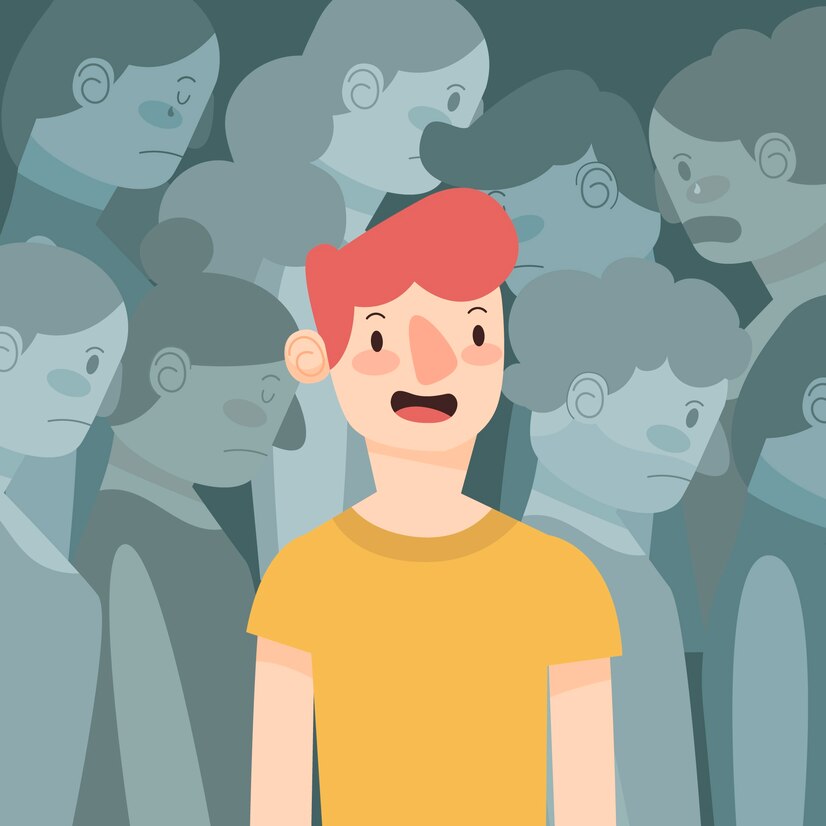Crowd anxiety, also known as enochlophobia, refers to the intense fear or discomfort experienced in crowded spaces. Individuals with People aversion may feel overwhelmed by the presence of many people, leading to symptoms such as sweating, trembling, rapid heartbeat, and a sense of panic. This anxiety can be triggered by factors such as past traumatic experiences, social anxiety, or a feeling of being trapped or unable to escape in crowded environments. Crowd anxiety can significantly impact a person’s ability to participate in social activities or public events.
What is crowd anxiety called?
Crowd anxiety is often referred to as “enochlophobia.” This term describes the intense fear or discomfort experienced in crowded or densely populated spaces. Individuals with enochlophobia may feel overwhelmed, anxious, or even panicked when faced with situations involving large crowds or crowded environments. Identifying and understanding this condition is the first step towards seeking appropriate support and treatment to manage and alleviate its symptoms.
Exploring the Causes of Crowd Anxiety
If you’re struggling with crowd anxiety and need to overcome this issue, seek professional guidance through the best “Anxiety counselling” to beat anxiety.
- Past traumatic experiences: Previous negative encounters in crowded settings can contribute to Group anxiety.
- Social anxiety: Fear of judgment or scrutiny from others in crowded places can lead to anxiety.
- Fear of loss of control: Some individuals may fear being overwhelmed or unable to escape in crowded situations.
- Sensory overload: The abundance of stimuli in crowded environments, such as noise and movement, can trigger anxiety.
- Claustrophobia: Fear of enclosed or crowded spaces can exacerbate Massophobia.
- Fear of physical harm: Concerns about safety and potential threats in crowded areas can induce anxiety.
- Lack of personal space: Feeling crowded or invaded in personal space boundaries can increase anxiety levels.
- Fear of embarrassment: Worries about making mistakes or drawing attention to oneself in a crowd can contribute to anxiety.
- Negative past experiences in social settings: Previous experiences of rejection or humiliation in social situations can heighten Group anxiety.
- Hypervigilance: Constant scanning of the environment for potential threats or dangers can intensify anxiety in crowded places.
- Trauma triggers: Crowded environments may serve as triggers for individuals with PTSD or past traumatic experiences.
- Feeling trapped: Sensations of being trapped or unable to escape in crowded spaces can evoke anxiety.
- Fear of crowds themselves: Some individuals may have a general fear or discomfort with crowds, known as enochlophobia.
- Cultural factors: Cultural backgrounds and upbringing can influence perceptions and responses to crowded situations.
- Personal temperament: Introverted or highly sensitive individuals may be more susceptible to People aversion.
- Biological factors: Genetic predispositions or imbalances in neurotransmitters may contribute to susceptibility to crowd anxiety disorders.
Several treatment options can help with crowd anxiety disorder. Seek professional help from “Top psychologist in india” to find effective strategies for managing social anxiety and reclaiming your comfort in crowded situations.
The Impact of Crowd Anxiety on Your Health?
- Increased stress levels: Crowd anxiety can lead to elevated levels of stress hormones like cortisol, which can negatively impact overall health.
- Impaired immune function: Prolonged stress from Sociophobia can weaken the immune system, making individuals more susceptible to illnesses.
- Cardiovascular issues: Anxiety in crowded settings can trigger elevated heart rates and blood pressure, increasing the risk of heart-related problems.
- Respiratory difficulties: Shallow breathing or hyperventilation during crowd anxiety can exacerbate respiratory conditions like asthma.
- Gastrointestinal problems: Stress-induced anxiety may lead to digestive issues such as stomachaches, nausea, or diarrhea.
- Sleep disturbances: Persistent Crowd fear can disrupt sleep patterns, leading to insomnia or poor quality sleep.
- Muscle tension: Anxiety in crowded environments can cause muscle tension, leading to headaches, neck pain, or backaches.
- Cognitive impairment: Chronic crowd anxiety may impair concentration, memory, and decision-making abilities.
- Mood disorders: Long-term Sociophobia can contribute to the development of mood disorders such as depression or generalized anxiety disorder.
- Substance abuse: Some individuals may turn to alcohol or drugs as a coping mechanism for managing Crowd fear, leading to substance abuse problems.
- Avoidance behaviors: People with Crowd fear may start avoiding social situations altogether, which can lead to social isolation and loneliness, further impacting mental health.
- Decreased quality of life: Overall, crowd anxiety can significantly diminish one’s quality of life by impairing physical health, mental well-being, and social functioning.
In conclusion, crowd anxiety, also known as ochlophobia, can significantly impact an individual’s well-being and daily functioning.
